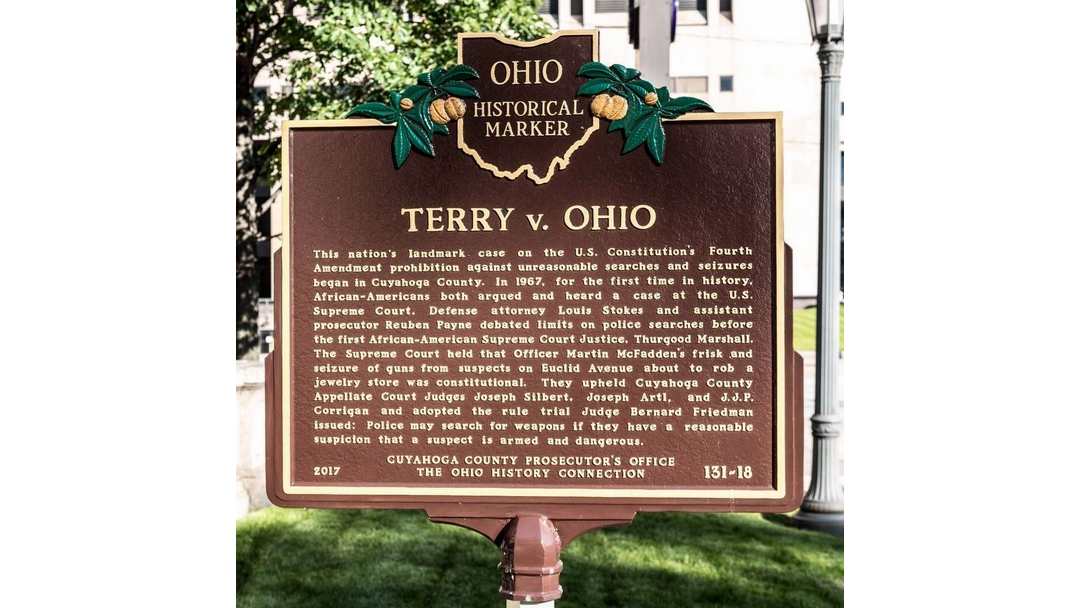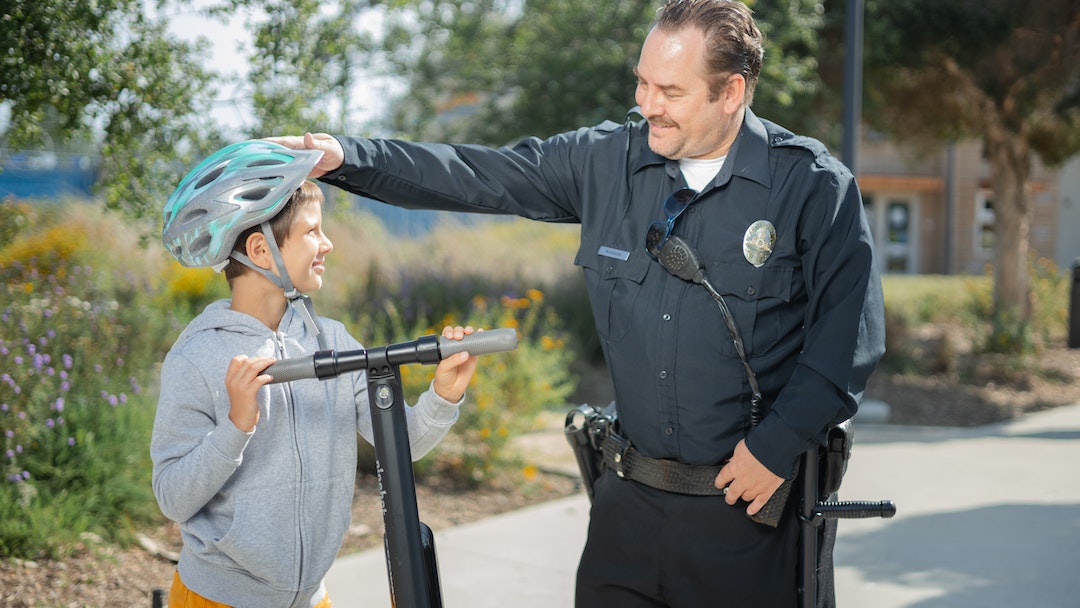(FOX 2) -September 24, 2023 11:22PM Next month marks the end of drug tests probing for marijuana use among some of the government's tens of thousands of employees who work for the state of Michigan. Following a summer vote by members on the Michigan Civil Service...

US Court of Appeals 6th – Opinion – Search & Seizure
Kentucky State Police officers searched Edward Lewis’s laptop, cell phone, and thumb drive and found evidence of child pornography. Lewis moved to suppress the evidence, arguing that it was obtained through an unlawful search and seizure of his electronic devices
United States 6th Circuit Court of Appeals
Districts Covered:
- Eastern District of Kentucky
- Western District of Kentucky
- Eastern District of Michigan
- Western District of Michigan
- Northern District of Ohio
- Southern District of Ohio
- Eastern District of Tennessee
- Middle District of Tennessee
- Western District of Tennessee
Case: United States v. Lewis
e-Journal #: 80155
Court: U.S. Court of Appeals Sixth Circuit ( Published Opinion )
Judges: Moore, Clay, and Gibbons
Concerns:
Search & seizure; Motion to suppress evidence; Validity of a search warrant; “Probable cause”; Applicability of the good-faith exception to the exclusionary rule; United States v Leon; Whether reliance on the search warrant was reasonable; A “bare bones” affidavit; United States v Weaver; United States v White; Nathanson v United States; Aguilar v Texas;
Exceptions to the warrant requirement; Consent; Applicability of the plain-view doctrine; Forfeiture
Summary:
The court held that some of the evidence taken from defendant-Lewis’s electronic devices “was obtained through searches and seizures that were not supported by a valid warrant or a valid claim to an exception to the warrant requirement.”
Thus, it reversed the order denying his motion to suppress, vacated his conviction, and remanded. After his motion was denied, he signed a conditional plea agreement pursuant to which he pled guilty to producing child pornography “but retained his right to appeal the district court’s suppression order and to withdraw his plea if he prevailed on that appeal.”
On appeal, the government did not dispute that the affidavit in support of the search warrant (made by a detective, G) did not establish probable cause, and the court held that it “violated the Fourth Amendment’s probable-cause requirement.”
The district court found the good-faith exception to the exclusionary rule applied. The issue here was “whether law-enforcement officers reasonably relied on the search warrant.” The court concluded they did not because G’s affidavit “was a bare-bones affidavit.”
The court found that, viewing it “under the totality of the circumstances, ‘the combined boilerplate language and minimal . . . information provide few, if any, particularized facts of an incriminating nature and little more than conclusory statements of affiant’s belief that probable cause existed regarding criminal activity.’”
It determined that in “omitting the essential facts of his investigation and communicating only his bottom-line conclusion, [G] asked the magistrate to find probable cause based solely on his say-so.
‘No reasonable officer could have believed’ under those circumstances ‘that the affidavit was not so lacking in indicia of probable cause as to be reliable.’” The court found that the “affidavit here much more closely resembles the bare-bones affidavits in Nathansonand Aguilar than the affidavit in White.”
It rejected the government’s suggestion “that ‘reasonable inferences’” could rescue the affidavit. The court held that applying the good-faith exception under the circumstances here “would be inappropriate.”
As to the government’s reliance on the consent exception to the warrant requirement, the “district court did not clearly err in finding that [G] and the other law-enforcement officers exceeded the scope of Lewis’s consent when they seized his electronic devices and forensically examined them.” And the government forfeited its plain-view argument and did not show plain error.
FAQ for United States v. Lewis
Q: What is United States v. Lewis?
A: United States v. Lewis is a 2023 case decided by the United States Court of Appeals for the Sixth Circuit. The case involved a defendant who was convicted of producing child pornography. The defendant argued that the evidence obtained from his laptop and cell phone should have been suppressed because the search warrant was invalid.
Q: What was the outcome of the case?
A: The Sixth Circuit vacated the defendant’s conviction and ordered a new trial. The court found that the search warrant was invalid because it did not establish probable cause. However, the court also found that the officers had acted in good faith in reliance on the warrant, so the evidence would not be suppressed.
Q: What is the significance of the case?
A: The case is significant because it reaffirms the importance of probable cause in search and seizure cases. The court also held that even if a search warrant is invalid, the evidence obtained may not be suppressed if the officers acted in good faith in reliance on the warrant.
Q: What are the implications of the case for law enforcement?
A: The case reminds law enforcement that they must have probable cause before obtaining a search warrant. The case also highlights the importance of acting in good faith when executing a search warrant.
Q: What are the implications of the case for defendants?
A: The case is a reminder to defendants that they have the right to challenge the validity of a search warrant. If a defendant believes that a search warrant is invalid, they should file a motion to suppress the evidence obtained from the search.
OTHER FAQ
Q: What is the difference between probable cause and reasonable suspicion?
A: Probable cause is a higher standard than reasonable suspicion. Probable cause is required to obtain a search warrant, while reasonable suspicion is required to conduct a Terry stop.
Q: What is a Terry stop?
A: A Terry stop is a brief detention of a person by law enforcement based on reasonable suspicion that the person is involved in criminal activity.
Q: What is a motion to suppress?
A: A motion to suppress is a motion that a defendant can file to ask the court to exclude evidence from trial. A defendant may file a motion to suppress if they believe that the evidence was obtained in violation of their constitutional rights.
Q: What happens if a defendant’s motion to suppress is granted?
A: If a defendant’s motion to suppress is granted, the court will exclude the evidence from trial. This means that the government will not be able to use the evidence to prove its case against the defendant.
Q: What happens if a defendant’s motion to suppress is denied?
A: If a defendant’s motion to suppress is denied, the government will be able to use the evidence against the defendant at trial. However, the defendant may still be able to challenge the evidence at trial on other grounds, such as relevance or hearsay.
More Posts

Michigan dropping marijuana drug testing for some new-hires on Oct. 1




Take a look inside the MSP Forensic Science Lab
MARQUETTE, Mich. (WLUC) - The Michigan State Police Forensic Science Lab located at the 8th District Headquarters in Marquette is the only forensic science lab in the Upper Peninsula. The 10-person lab is made up of fingerprint examiners, controlled substance...




Michigan Marijuana Dispensary Owner Convicted of Tax Evasion and Obstructing the IRS
A federal jury in Detroit found a Michigan man guilty of evading federal income taxes and obstructing the IRS, among other charges. According to court documents and evidence presented at trial, Ryan Richmond, of Bloomfield, owned and operated the marijuana dispensary...




Cocaine Isomer Defense
CASE LAW Federal case list is long - See items after that list MICHIGAN UNITED STATES OF AMERICA v. IDRIS QUINTELL WILKES (2023) - Link Michigan law covered more cocaine-related substances than federal law. More specifically, he argued that Michigan law swept more...




RIP Michigan Rick Thompson
Legendary activist, tireless advocate for Michigan Cannabis legalization, and frontline soldier for those affected by the war on cannabis. You will be remembered and have a chapter in the history of the end of cannabis prohibition. Carry on wherever you are. Carry on....




Oakland County Businessman Sentenced To 28 Months In Federal Prison For Paying Bribes To Rick Johnson
GRAND RAPIDS, MICHIGAN – U.S. Attorney for the Western District of Michigan Mark Totten today announced that John Dawood Dalaly, 71, of West Bloomfield, Michigan, was sentenced to serve 28 months in federal prison and fined $25,000 for paying bribes to Rick Vernon...




Supreme Court Ruling Strengthens First Amendment Protections: Implications for Michigan’s Threat Speech Laws
In a significant legal development, the United States Supreme Court has recently issued a ruling that has far-reaching implications for individuals facing charges related to "threat speech" in Michigan. The case of Counterman v. Colorado, decided on June 27, 2023,...




No Second Chances to Win in Court
Wrong Place, Wrong Attorney We had someone call the office the other day. They said they got into a situation with cannabis in an unfriendly part of the state and were being punished and drained financially to put the kibosh on their ability to fight. Here's a brief...




Stop and Frisk – Terry v. Ohio
Terry v. Ohio (1968)Background On October 31, 1963 while conducting his regular patrol in downtown Cleveland, seasoned Cleveland Police detective Martin McFadden, who brought 39 years of law enforcement experience to the job, observed three men behaving suspiciously...




Driver License Restoration in Michigan
Walking to work is fun. In fact very healthy and climate friendly. But sometimes wouldn't you rather just drive? Unfortunately if your not one of the privileged and had your drivers license suspended or revoked then you have to fight to get it back. Driver License...



